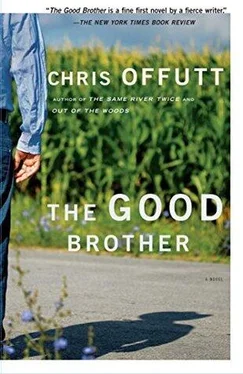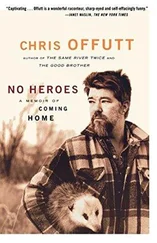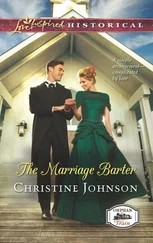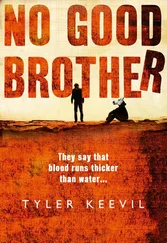“What are they like?”
“They just want to take. They can’t help it because that’s all they know. They’ve had everything in the world given to them, free land on the Rez, free food, even free houses. They won’t work. All they do is drink.”
“All of them?”
“Not every single one, no. But they’re the exception. The rest just want to live off the white man.”
“So you don’t like Indians.”
“I didn’t say that. I like Indians fine. I like them best when they stay on the Rez.”
Joe accelerated and the truck weaved. He realized he was too angry to drive. He parked under a cottonwood and stepped to the road. A shooting star cut briefly through the sky and was gone before he could focus on its passage. Botree left the cab, her face pale in the moonlight.
“Where I grew up,” Joe said, “there wasn’t nothing but poor white people out in the county. We had the bootlegger, poker games, and shootings. When we went to town, people didn’t like us because of that, and they treated us bad. I knew it when I was a kid. It was little stuff, but it was there. Like at the grocery store, the bag-up boy helped everybody get groceries in the car but my mother. Later I got a job on a trash truck. People in town looked down on me because of it.”
“That would never happen here,” Botree said.
“No? What about a dishwasher or a poker dealer? What about a stripper?”
She turned away to stare toward the mountains, where sky and earth blended in the night. She leaned against the bumper, her arms folded across her chest.
“I know a little something about that,” she said, “A long time ago I used to dance at the Wolf. I saved some money but afterwards I couldn’t get work anywhere in town.”
“That’s what I mean.”
“Then I went down to Texas and got pregnant. People treated me like I had a disease. Like I was nothing, because I wasn’t married.”
Ursa Major sprawled in the night sky. The air chilled Joe’s arms.
“Johnny has a girlfriend,” Joe said. “She’s a dancer at the Wolf.”
Botree stood without moving, a shadow in the moonlight.
“They have a ten-month-old girl.”
“Oh, Johnny,” she said. “Oh, no.”
“There’s another thing,” he said. “The reason he never said nothing about it.”
She cocked her head, waiting.
“She’s an Indian.”
Botree was quiet for a long time. Stars shimmered in the sky like water on paint. Wind rustled the tree boughs. Botree lifted her hair free of the jacket collar.
“What a damn shame,” she said. “A half-breed’ll have it tough.”
“She’s half your family, too.”
“I don’t know how much help that is. Look at how the rest of us turned out.”
Joe touched her hand. She trembled and was still.
A dull thump came from inside the truck and Dallas peered through the windshield. Botree and Joe climbed in the cab. A quarter moon lay above the silhouetted mountain peaks.
“The moon’s broke,” Dallas said.
Joe and Botree laughed. As Joe drove, he explained the lunar cycle.
“The moon gets cut in half every month?” Dallas said.
“Sort of, yes.”
“And that gets cut in half.”
“Right.”
“So a fall moon is when it gets all its pieces back.”
Within a few minutes, Dallas was asleep again. Joe turned onto the ranch road and slowed the truck as he spoke.
“I had a little talk with Coop and Owen. They offered to move into the old bunkhouse. You know anything about that?”
“Yes.”
“I told them I had to talk to you first.”
“I appreciate that. They don’t want to be in the way.”
“Are they?”
“Not to me,” Botree said. “But they’re my family. They’re trying to help how they can.”
“Help what?”
“If you want to leave, say so. Your leg is fine. There’s no need in you staying anymore unless it’s something you want to do.”
“Do you want me to?”
“Yes,” she said, “that’s what I’d like.”
Joe reached across the children and covered her hand with his. He wanted to remain in the cab of the truck forever, driving dirt roads in the night. The dog star glowed. The Milky Way lay like a sleeve of lace among the stars.
Botree carried Abilene through the mud room and down the long hall, while Joe followed with Dallas. They placed the boys in bed and watched as they rolled toward the middle of the mattress, their heads bowed to each other. Abilene placed a hand on his brother’s arm.
“They’re good little boys,” Joe whispered.
“They fight some.”
“But they stick up for each other.”
“Like dogs in a pack.”
Botree left, but Joe stayed for a long time, thinking of the room he’d shared with his brother, its slant ceiling and cold corners. The attic had offered them a privacy denied the rest of the family. During summer the room was very hot. Dallas rolled over and his arm brushed Abilene, who stirred before sucking his finger.
In the living room, men and women from the picnic stood about, holding automatic rifles as casually as garden tools. Several had bolstered pistols on their hips. A few wore fatigues and combat boots, while others wore Bills hats. They reminded Joe of a Wednesday night prayer meeting except for the guns.
Coop huddled at the dining room table with three men. Beside a CB radio were stacks of money and gold coins.
“Is that to get Lucy out?” Joe said.
“Yes,” Botree said.
“With gold?”
“A lot of these people here, that’s all they’ll keep.”
“I guess they don’t believe in money.”
“That’s right.”
Joe wanted away from the group. They weren’t his family or his friends. He went to his room and sat on the bed, surrounded by clean white animal skulls. He wondered why people only banded together to fight, rather than to protect. The same was true of Kentucky. Nothing pulled a family closer than a threat to one of its members, right down to second or third cousins.
From a paper sack beneath his bed, he removed some cash and his gold coin. His Jeep was in the barn. He could walk out the back door and be halfway to Missoula before anyone noticed his absence. He remembered Ty’s talk of Alaska and wished his leg was strong enough to go.
He returned to the main part of the house. Coop was pouring coffee into several cups on a tray. A woman sat at the table, counting money. Joe set the pile of bills on the scarred table and used the gold coin to hold them in place. He leaned against the wall beside an ancient horse skull patched with moss.
“Thanks, Joe,” Owen said. He turned to the group. “So far Frank don’t know nothing. He’s out of CB range until he gets to his camp. Locking up Lucy might be a trick to draw him out.”
“Just what them bastards would try,” a man said. “Getting to him through a woman.”
“I wish to hell they’d pull me over,” another man said. “It’d be the last time they’d stop an innocent citizen.”
“They’re going after the weak,” said a man, “like a goddam wolf. Next they’ll try for our kids.”
The arrest had increased the Bills’ sense of their own importance. Joe felt the excitement spread through the room, a tension that reminded him of the Blizzard post office on the day government checks arrived. People were enjoying themselves more than they had at the picnic.
Owen raised his hand to hush the crowd.
“What we got to do,” he said, “is be more prepared for something like this. We’ll keep money on hand to get the next person out quicker, and you can bet there’ll be a next time. I want everybody to double-check your brake lights and turn signals. Don’t give them a reason to pull you over.”
Читать дальше












